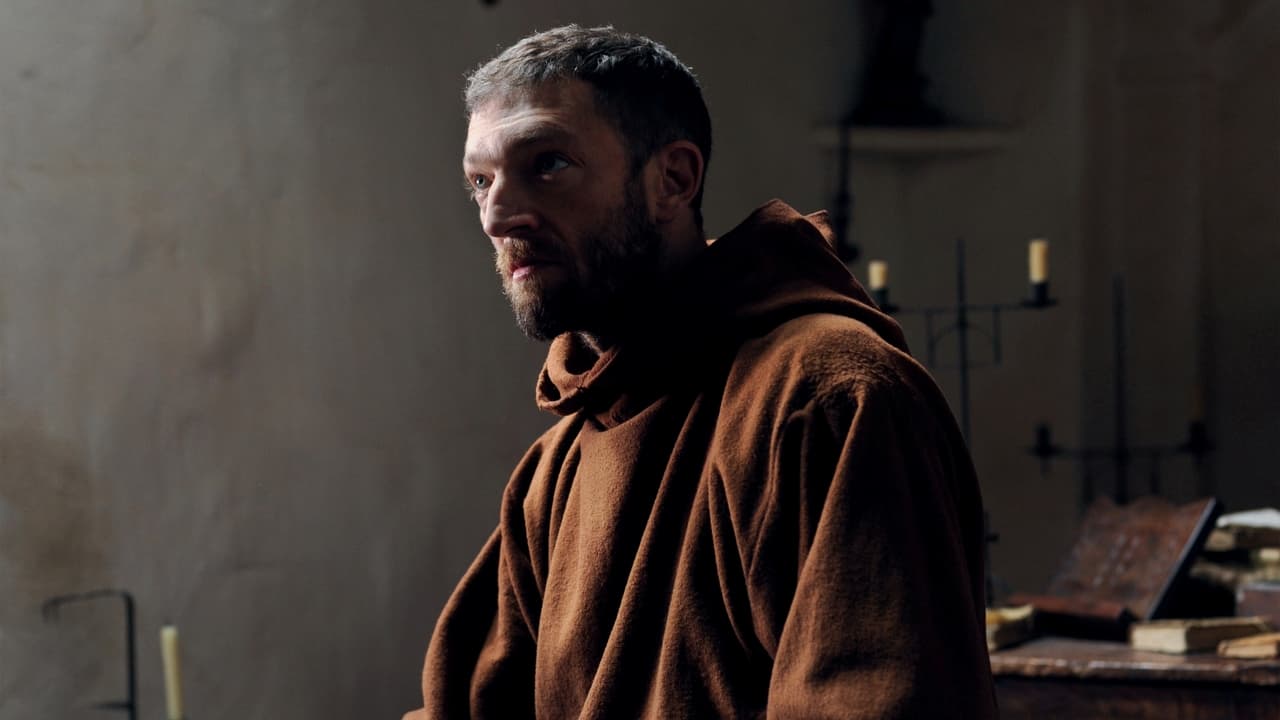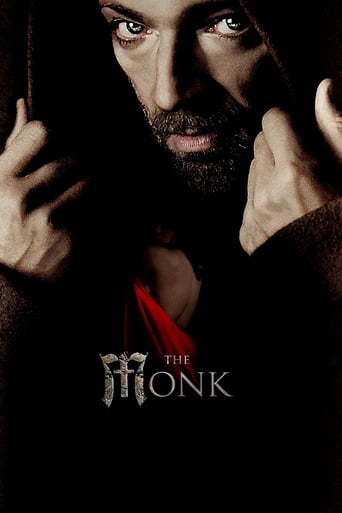

Based on the Matthew Gregory Lewis novel published in 1796, the oft-adapted "The Monk" is a cinematic oddity about a 16th Century Spanish friar (the understated Victor Cassel) who's winning souls to Christ despite the fact that he is deep into his own crisis of faith (though the movie takes place in Spain, the dialogue is in French). The screenplay by Dominik Moll (who also directed the film) and Anne-Loiuse Trividic is rich in irony as Friar Ambrosio seeks salvation from the very same people who are seeking it from him. Only, in his case, salvation lies in becoming MORE worldly - particularly in the realm of sexuality - not less so. Raised an orphan in the monastery, Ambrosio is coming to realize that there are aspects of the outside world that his cloistered existence has never allowed him to experience, and that, perhaps, God is reaching out to him with the message that it might not be all that bad for him to give himself over to them.Many people and factors seem to be conspiring to bring him to this realization, including a woman disguised as a mask-wearing monk (her cover is that she claims to have suffered disfiguring burns to "his" face); a beautiful, innocent young woman who comes to him for spiritual guidance; a pregnant nun; a series of supernatural dreams and visions; a really nasty poisonous centipede, and a strategically placed, crashing gargoyle.Or is he simply falling prey to the Devil's lies and machinations and trying to find a way to justify rebelling against God? It takes about half the length of the movie before we are finally hooked into the story, but, once we are, it becomes a powerful dissertation on the struggle between the flesh and the spirit that has defined the human condition for as long as we have inhabited this planet. The overly enigmatic plotting and deliberate pacing that function as distancing devices at the outset of the movie eventually pay off as the movie's theme crystallizes into sharper view.
... View More"Isn't it strange how we fail to see the meaning of things, until it suddenly dawns on us?" Are monks greater than common people spiritually? Finally, this monk sees purity in common people more than him. What is right, what is wrong, who will decide it? What is sin, who will judge it? Is it church? Or priests? Is it relation between man and women a sin? It is the story of monk who has seen the cruelty of his traditional monkhood and illusions of his purity. At the time of facing world and his inner instincts, he becomes meaner than a criminal. His cruel pride of holiness becomes not but vein. Director Dominik Moll becomes one of the great directors in the world with this move. The way he made this movie is highly spiritual. His insight is outstanding. Photography and music are soul stirring. Amazing sound recording and art. Some Traditional Catholics may not like this movie. But seekers of truth belong to any religion must watch this movie. It is truly artistic and philosophical. It is highly recommended.
... View MoreYes, we get it, it's the sixties/seventies all over again. Did we need 101 minutes predictable bore to remind us how films were (poorly) shot? So we get it all in one dose: bad special effects, a papier mâché Madrid with thunder and lightning, overexposed sun-blanched exteriors . And of course the erotic and religious ecstasy in the convent, the self-flagellation, sacrilege, incest, murder soft porn shot in soft lights, a pact with the devil, a novice in an iron mask. It would have been great if shot by Roger Corman or Mario Bava 40-50 years ago (think The Whip and the Body). Unfortunately, I have seen this movie already multiple times back then, Did we need a reminder? I'll give it 3 stars for the nostalgia effect and the sparse erotic scenes. If you don't care about that, stay away from this waste of time.
... View MoreDominik Moll makes few movies : this is only his fourth feature film in 17 years. But his themes are always very consistent. And his latest choice, "The Monk", Matthew G. Lewis's 18th Century cult novel, cherished by the Surrealists, appears as particularly relevant in the wake of "Intimacy", "Harry, He's Here To Help" and "Lemming". It is a good pick because the book's fiendish subject allows the director to go further into the issue he has explored in his two former movies : evil lurking behind the reassuring codes of polished society. The only real differences with his former works are that "The Monk" is a period film (the scene is set between the late 16th Century and the early 17th Century) and the first one made by the gifted French director outside France (it is filmed entirely in Almeria and Madrid, Spain), which only brings added value to his questioning : what more fertile soil is there indeed for evil to flourish than the cult of austerity and purity in a society permeated with religiosity? The strange thing is that "The Monk", with such potential assets, failed to draw large audiences as well as to get good reviews. Most critics even hammered the film, going as far as to call it a bomb. But is it really such a bad work? Personally, I do not think so. For sure, "The Monk" is not the masterpiece it could have been. Its main flaw may be that the film is too wise, more illustrative than really profound and unsettling (Ken Russell's 'The Devils", or even Stephen Frears's "Dangerous Liaisons", were much more troubling and inspired), but as it is, it does not deserve such rough treatment. The critics' excessive harshness may simply be due to expectations set too high and disappointed. For despite being too controlled, Dominik Moll's last effort IS a finely crafted film with beautiful, well-framed images (some, like Ambrosio preaching to his ravished congregation, even have the splendor of a Spanish painting of the time) , high quality sound design, and a very good (though occasionally a bit invading) score by Alberto Iglesias, well-chosen locations and a good cast. Brother Ambrosio, the Capuchin friar of the title, is aptly played by Vincent Cassel, who makes you believe throughout that he is this austere and uncompromising man of God who believes only in virtue and has no doubt he will remain safe from evil and lust. Also to be noted are Catherine Mouchet, moving as an ailing woman who suffers without losing her dignity, and young Camille Japy, whose presence in the role of the ingénue untouched by evil is refreshing.When leaving the theater you may feel slightly frustrated for, yes, "The Monk" lacks a little intensity, but slightly only, as you will just have seen an interesting, well-made film. Not such a bad experience after all.
... View More